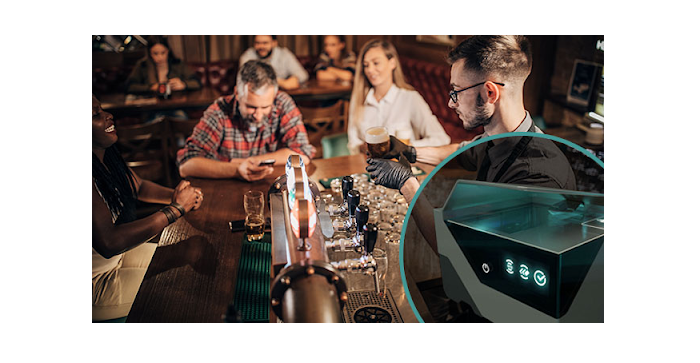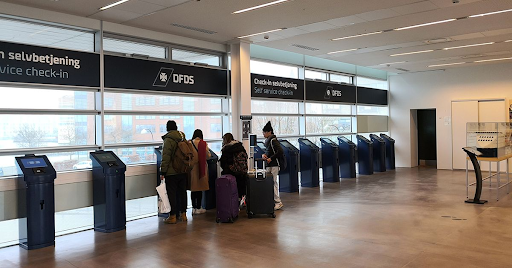Technology
ID Scanners at Work – How Will They Help Your Business?

As the world becomes more security-conscious, many companies have increasing needs for identifying people carrying some sort of ID card. Do you need to identify customers, employees, contractors, and others who enter your premises or otherwise do business with you?
For many businesses, regulations arising from the COVID-19 outbreak have added to the need to check documents and report to authorities.
Electronic ID scanners take the pain out of this process. They save time while vastly reducing the opportunity for the errors that can arise from:
1. Inattention or distraction of the person receiving the document
2. Difficulty in reading a worn or blurred document
3. Poor light conditions – as might often occur in a bar or a nightclub
4. Errors in the manual recording of information.
This article points out a few types of companies that can benefit from using electronic document scanners to improve their businesses and make their customers’ lives more pleasant.
Adaptive Recognition offers several scanner models that uniquely fit specific situations where electronic scanning can work to your benefit.
Doctors’ Offices, Hospitals, and Other Medical Facilities
Those patients you do not know personally must be accurately identified for record generation and record-keeping. Why? Because the annals of medical treatment contain many stories of people who received the wrong medicine, had the wrong limb amputated, or were treated incorrectly in some other way. Electronic ID scanners prevent these occurrences from ever happening again.
Many medical ID documents carry all sorts of history that can be important to medical professionals. If an accident victim is admitted to a hospital emergency room unable to communicate, this information could be life-saving.
Pharmacies can use a document scanner to check prescriptions and the appropriateness of certain medicines according to customers’ allergies and health conditions.
Bars, Restaurants, and Others that Serve Alcohol or Tobacco
Nearly every country in the world has age limits for purchasing alcohol and tobacco. In countries that allow firearms to be sold, background security checks are usually required.
Purchasers must show the vendor evidence that they’ve been reviewed, and the vendor must report to authorities that each purchaser was qualified. On the other hand, establishments that serve or sell these items must ascertain that would-be purchasers meet the appropriate requirements. They must also prove to regulators that they verified their customers’ qualifications.
As for nightclubs and bars, the ID process often occurs in dim light conditions, making visual identification difficult. However, bar/nightclub owners must still perform the ID screening lest they want to risk allowing underage people inside, resulting in the establishment being severely penalized.
An ID scanner can aid in all of the above situations. In fact, using the ID reader device makes the process of checking for age pleasanter for both the checker and the customer.
If reservations are required, a database to check each patron’s reservation status can connect to the document scanner. Where large numbers of people want to enter, speeding up the process is another great benefit of the ID scanner. And, lastly, ID scanners can help check the criminal history of guests as well at businesses and locations where this additional step is a must.
Checking Employees’ and Customers’ Identity
Plant operators, large offices, and large retail establishments often have many employees and customers entering their premises. If the location houses sensitive people or information, you want to be certain the people entering are authorized to be there. Document scanners make the process simple and fool-proof.
Screening customers known for shoplifting or other criminal histories limits risks in a retail location. ID and document scanners can connect with databases to verify the backgrounds of anyone entering.
However, the above screening methods aren’t the only way of using advanced ID scanners. They can also be used for identifying your high-volume customers and holders of premium privileges. In fact, it is a brilliant marketing tool; knowing more about recurring customers and tailoring offers specifically for them can easily lead to building everlasting loyalty, making these people the backbone of your business.
Romanian Bank Makes Great Strides in Security and Efficiency
It’s safe to say that an ID reader is a true lifesaver for banks, guaranteeing utmost security. For starters, the document scanners eliminate personal data privacy risks and data errors, as it’s virtually impossible for anyone to complete an unauthorized transaction. Also, the data relating to transactions and accounts makes it easy to satisfy requirements for reporting to regulatory agencies. And as a nice addition to that, customers save time and needn’t worry about the safety and security of their personal data.
So far, many financial institutes have decided to reinforce their data security methods with an ID scanner. Here’s the story of a large Romanian bank chain that uses ID readers to verify customers’ identities and smooth their transaction experience.
Airlines, Railroads, Shipping Lines, and Other Transportation Providers

These companies have the most obvious need to speed up their customer handling and protect their facilities from the entry of unauthorized or criminal elements.
Passengers boarding a train, airplane, or ship must:
- Hold valid tickets and boarding passes
- Display passports and other documents according to their route and destination
- And, recently, show proof of vaccination or testing for coronavirus.
For freight carriers, certification of contents and security in handling shipments at transfer points prevents meddlers from pilfering or adding contraband material to a shipment.
Adaptive Recognition offers special software to identify shipping containers, railway cars, and hazardous material shipments. The software can be linked to ID scanners verifying the identity of the shipper, transfer agent, or consignee. Ships and trains that carry private vehicles can use a combination of ID scanners and ALPR (Automatic License Plate Recognition) cameras to confirm the identity of shippers and receivers and link their ownership or other authorization to each vehicle.
The applications we’ve discussed here are a small sample of the potential uses for ID scanners to enhance business operations and security. The complexities of travel and interpersonal transactions have made document identification vital for many businesses, and it seems certain that this trend will continue.
To learn how document scanners can enhance your business and make your life easier, visit Adaptive Recognition’s website and contact their experts to discuss your scanning needs.

















































